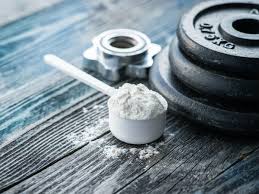
Creatine, a well-known supplement primarily used to enhance athletic performance, is gaining attention for its potential benefits in managing and mitigating the effects of concussions and head injuries. This emerging area of research highlights creatine’s ability to support brain health and recovery, offering a promising avenue for addressing one of the most challenging aspects of sports and trauma medicine. Studies have demonstrated that creatine supplementation can reduce brain damage following traumatic injury. This is believed to be due to creatine’s role in stabilizing cellular membranes and reducing oxidative stress, which are crucial factors in brain injury recovery. Another significant benefit of creatine in the context of head injuries is its ability to mitigate post-concussion symptoms. Concussions often lead to a range of symptoms, including cognitive impairment, fatigue, and mood disturbances. By enhancing brain function and reducing oxidative damage, creatine may alleviate some of these symptoms and improve cognitive recovery. This effect is particularly important for athletes and individuals whose performance and quality of life are impacted by persistent post-concussion symptoms. Moreover, creatine’s ability to support muscle recovery and reduce inflammation may indirectly benefit concussion management. Physical rehabilitation following a concussion often involves gradual reintroduction of exercise, and creatine can help improve muscle strength and reduce inflammation, thereby aiding in the overall recovery process. -Zach Anderson  One of the primary ways creatine may aid in concussion management is through its neuroprotective properties. Creatine plays a crucial role in maintaining cellular energy homeostasis by replenishing adenosine triphosphate (ATP) levels. During a concussion, the brain's energy metabolism can be severely disrupted, leading to an increased demand for ATP to restore cellular function and repair damage. By boosting ATP availability, creatine can help the brain cope with the heightened energy demands and potentially facilitate faster recovery.
One of the primary ways creatine may aid in concussion management is through its neuroprotective properties. Creatine plays a crucial role in maintaining cellular energy homeostasis by replenishing adenosine triphosphate (ATP) levels. During a concussion, the brain's energy metabolism can be severely disrupted, leading to an increased demand for ATP to restore cellular function and repair damage. By boosting ATP availability, creatine can help the brain cope with the heightened energy demands and potentially facilitate faster recovery. While the sports performance community was reluctant to accept creatine as a viable and reliable supplement when it first came to market, it is currently embraced by so many of our peers within the sports performance and development world. It is responsible to first doubt claims made by new supplements when they first come to market. It takes time for peer- review and research to validate the true impact or harm a supplement can have on a person. Creatine has been around since 1992. Today creatine holds potential as a supplementary aid in managing concussions and head injuries. By supporting brain energy metabolism, reducing oxidative stress, and potentially alleviating post-concussion symptoms, creatine could play a valuable role in enhancing recovery. As research continues to explore these benefits, creatine may emerge as a significant tool in the broader strategy for managing and recovering from head injuries.
While the sports performance community was reluctant to accept creatine as a viable and reliable supplement when it first came to market, it is currently embraced by so many of our peers within the sports performance and development world. It is responsible to first doubt claims made by new supplements when they first come to market. It takes time for peer- review and research to validate the true impact or harm a supplement can have on a person. Creatine has been around since 1992. Today creatine holds potential as a supplementary aid in managing concussions and head injuries. By supporting brain energy metabolism, reducing oxidative stress, and potentially alleviating post-concussion symptoms, creatine could play a valuable role in enhancing recovery. As research continues to explore these benefits, creatine may emerge as a significant tool in the broader strategy for managing and recovering from head injuries.


